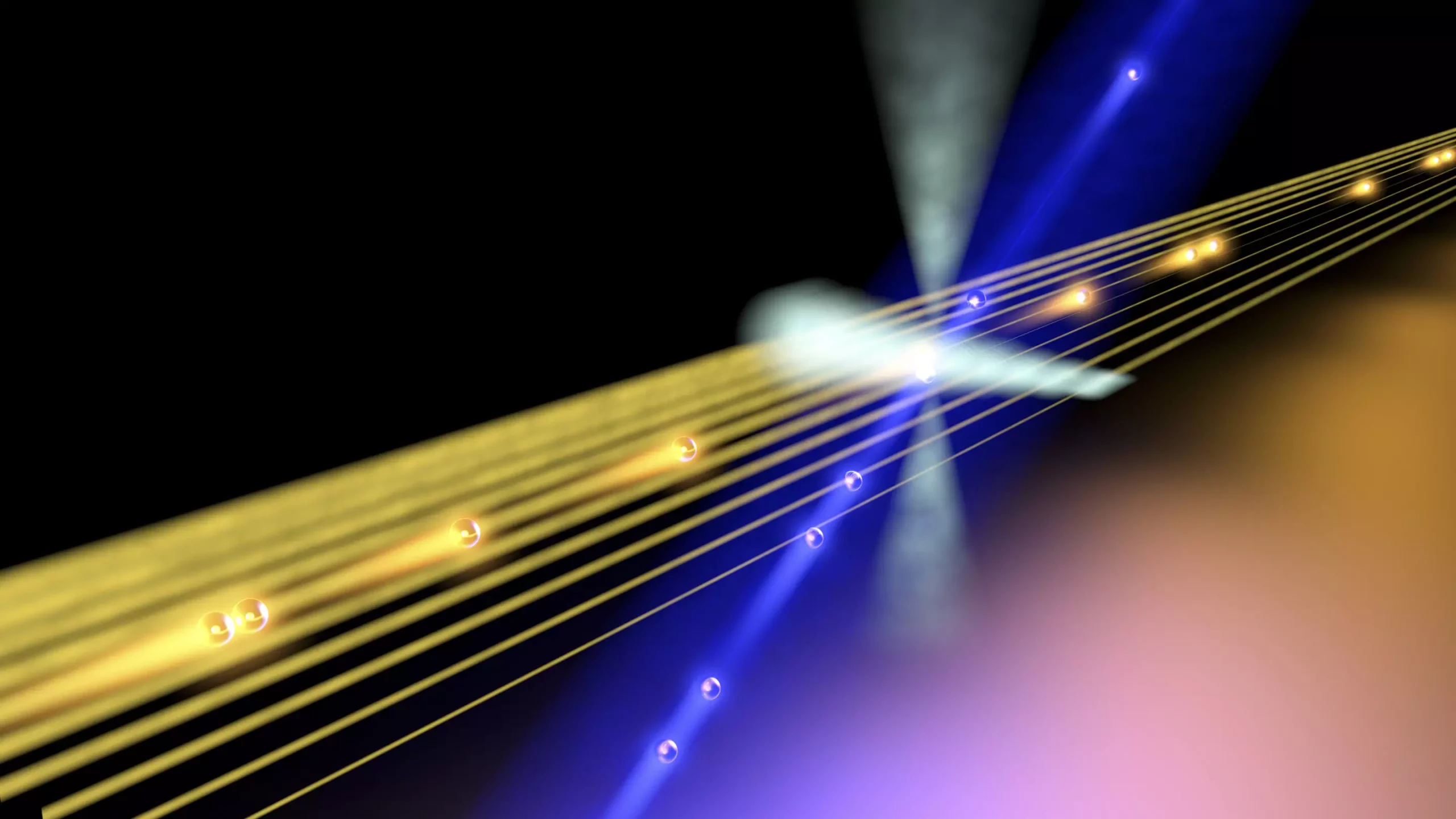In a groundbreaking study, a team of researchers from Leibniz University Hannover and the University of Strathclyde in Glasgow has successfully disproved a long-standing assumption about the impact of multiphoton components in interference effects of thermal fields and parametric single photons. Their findings challenge the conventional understanding of quantum interference and have significant implications for various fields of science and technology.
Quantum interference is a phenomenon that occurs when two or more particles interfere with each other, either constructively or destructively, resulting in a complex pattern of probability amplitudes. Previous calculations and experiments have generally assumed that the impact of multiphoton components in interference effects can be neglected and subtracted from calculations. However, the research team, led by Prof. Dr. Michael Kues, has now demonstrated that the background field cannot be simply eliminated and that it plays a crucial role in quantum interference.
The researchers specifically investigated the visibility of the Hong-Ou-Mandel effect, a well-known quantum interference effect. Traditionally, it was believed that multiphoton contamination would only impair the visibility of this effect, and thus, could be subtracted in the calculations. However, Ph.D. student Anahita Khodadad Kashi, who was at the forefront of this research, reveals that their experiment debunked this assumption. They discovered a previously unknown fundamental characteristic that had been overlooked in previous calculations.
By questioning and reevaluating their initial findings, the research team developed a new theory of quantum interference of thermal fields with parametric single photons. The theoretical model, combined with experimental verification, opens up exciting possibilities for predicting and measuring quantum interference effects more accurately. Lucia Caspani from the University of Strathclyde was the first to validate this approach, further strengthening the team’s confidence in their groundbreaking discovery.
Implications for Quantum Key Distribution
The implications of this research reach far beyond the realm of fundamental science. The findings have particular relevance for quantum key distribution, a crucial aspect of secure communication systems in the future. Understanding how quantum interference effects are interpreted in the generation of secret keys is vital for further advancements in this field. With their new insights, Kues’ team has made a significant contribution to the development of secure communication technologies.
Despite their groundbreaking discovery, the research team acknowledges that many questions still remain unanswered. The intricacies of quantum interference and the role of multiphoton components continue to puzzle scientists. Further research and collaborations are needed to explore and clarify these phenomena, paving the way for future breakthroughs in quantum science and technology.
The research conducted by the international team of scientists from Leibniz University Hannover and the University of Strathclyde in Glasgow represents an unprecedented breakthrough in the understanding of quantum interference effects. By disproving the conventional assumption about the impact of multiphoton components, the researchers have not only challenged prevailing notions but also enriched our understanding of quantum phenomena. Their findings have significant implications for various scientific and technological fields, particularly in the development of secure communication systems. As the research continues, we can expect further advancements in the field of quantum science and a deeper understanding of the intricate world of quantum interference.


Leave a Reply